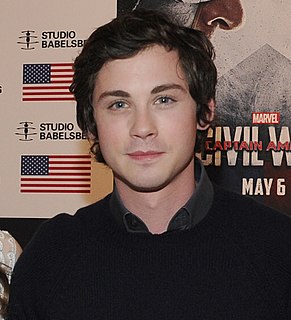A Quote by Bob Colacello
Well, it wasn't really a decision on my part although you always hope as an author that a book that goes out of print somehow winds up back in print. These days publishers like to put out-of-print books into e-book form, but I really wanted to do an update.
Related Quotes
When Emily Dickinson's poems were published in the 1890s, they were a best-seller; the first book of her poems went through eleven editions of a print run of about 400. So the first print run out of Boston for a first book of poems was 400 for a country that had fifty million people in it. Now a first print run for a first book is maybe 2,000? So that's a five-time increase in the expectation of readership. Probably the audience is almost exactly the same size as it was in 1900, if you just took that one example.
The worst was I had little control in terms of smoothing out my questions and making myself look good the way I could in print. All the ums and uhs and rambling and apologies and hyenalike laughter at something that really isn't funny. You know when an artist will crack a joke, and you're like, "That's so hilarious," like, the fawning laughter that you can at least cut when it's print? It's just all out there, and it's really humiliating.
The current publishing scene is extremely good for the big, popular books. They sell them brilliantly, market them and all that. It is not good for the little books. And really valuable books have been allowed to go out of print. In the old days, the publishers knew that these difficult books, the books that appeal only to a minority, were very productive in the long run. Because they're probably the books that will be read in the next generation.
Kindle Singles is publishing on skates. It prints like lightning; our book meets readers in hours. I've spent so many years waiting for publishers to consider whether they wanted to print a book of mine, making contracts, taking months to fit it into the Fall list or the Spring list, fitting it into an advertising plan.
I don't want to name names because they'd be mad at me if I did, but people who are significant novelists can't get published by real publishers at this point, or have to go through two years of trying after writing a novel that's taken them five or six years and simply can't get the thing in print. Or it gets in print and it doesn't get reviewed in the New York Times Book Review and disappears without a trace. I mean, it's terrifying. I don't know how anybody can stand it. It's such an enormous amount of work and the economics of it are really quite brutal.
I don't think tablets are where we should be focused. But I do think they could end up being an efficient way of delivering textbooks. They're just not really that, yet. There's all sorts of poisons and mined minerals and carnage that goes on to make a tablet. Way more than to print a book. Or a bunch of books.






































